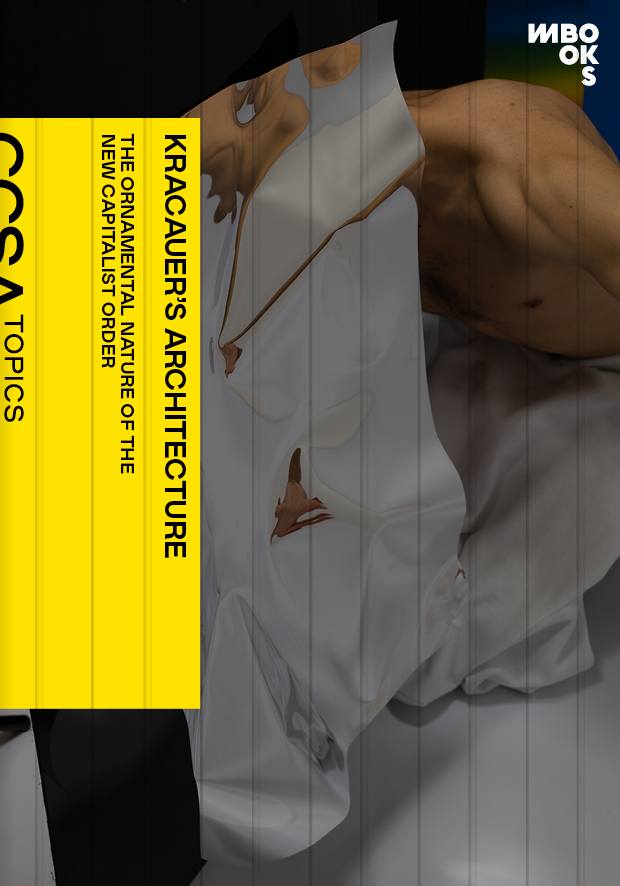What is the connection between modern architecture and capitalism? This question is explored in an essay by architectural historian Carsten Ruhl, which focuses on the sociologist, philosopher and journalist Siegfried Kracauer. The essay has been published in the new publication series “Architectures of Order.” Since 2020, more than 20 scientists from Goethe University and the Technical University of Darmstadt have been conducting research on this topic – which is at the same time one of the research initiatives funded by the federal state of Hessen’s offensive for the development of scientific and economic excellence, known by its German acronym LOEWE.

The first volume of the series “Architectures of Order” has now been published under the title “Kracauer’s Architecture.” The essay’s author is Carsten Ruhl, professor of Architectural History at Goethe University Frankfurt and spokesman of the LOEWE research cluster “Architectures of Order”. In the essay, Ruhl focuses on the reflections of German sociologist, philosopher and journalist Siegfried Kracauer on architecture. Whereas Kracauer’s texts in general are often the subject of sociological and media studies research, so far they have hardly been examined from the perspective of architectural studies. Thus, it is also little known that Kracauer studied architecture, worked as an architect during World War I, and received his doctorate in 1915 with a thesis on the history of architecture. After the war – by now Kracauer was an editor at the “Frankfurter Zeitung” – he frequently commented on contemporary architectural developments in his journalistic texts. From these contributions to his autobiographical novella “Ginster” published in 1928, a strong interest in architectural phenomena can be discerned. In “Ginster”, the question of ornament is central to Kracauer’s analysis of society and its architecture. Carsten Ruhl argues with Kracauer that the absence of ornament in modern architecture can be understood as an ornamental concept of the new social order of capitalism.
The publication series is published in English within CCSA Topics, the publication series of the Center for Critical Studies in Architecture, a cooperation of Goethe University (Institute of Art History), the Technical University of Darmstadt (Department of Architecture) and the Deutsches Architekturmuseum. The volumes of the “Architectures of Order” series are published in print and, with a time delay, as Open Access publications. The next titles in the series are already being planned: They will deal with topics as diverse as the architecture of the Herrnhuter Brüdergemeine or the topos of the glass house in female-coded designs in modernist literature and architecture. The series thus reflects not only the range of research topics addressed in the research cluster, but also the disciplinary diversity of the scholars researching the project. In addition to the history and theory of architecture, the topics of digital design, design and urban planning, history of the early modern period, sociology of culture and knowledge, art history, media studies, and legal history are represented.
“Architectures of Order” is a four-year (2020-2023) interdisciplinary research project undertaken by Goethe University Frankfurt and the Technical University of Darmstadt, with the Max Planck Institute for Legal History and Legal Theory and the Deutsches Architekturmuseum as associated partners. Comprising 26 members, the project is concerned with an investigation of architecture as a cultural practice of ordering that manifests aesthetically, materially, spatially, and discursively, as well as epistemologically.
Publication: Carsten Ruhl: Kracauer’s Architecture. The Ornamental Nature of the New Capitalist Order, with a response from Philip Ursprung, edited by the Center for Critical Studies in Architecture (CCSA), Weimar: M BOOKS, 2022. https://www.m-books.eu/store/kracauers-architecture/








